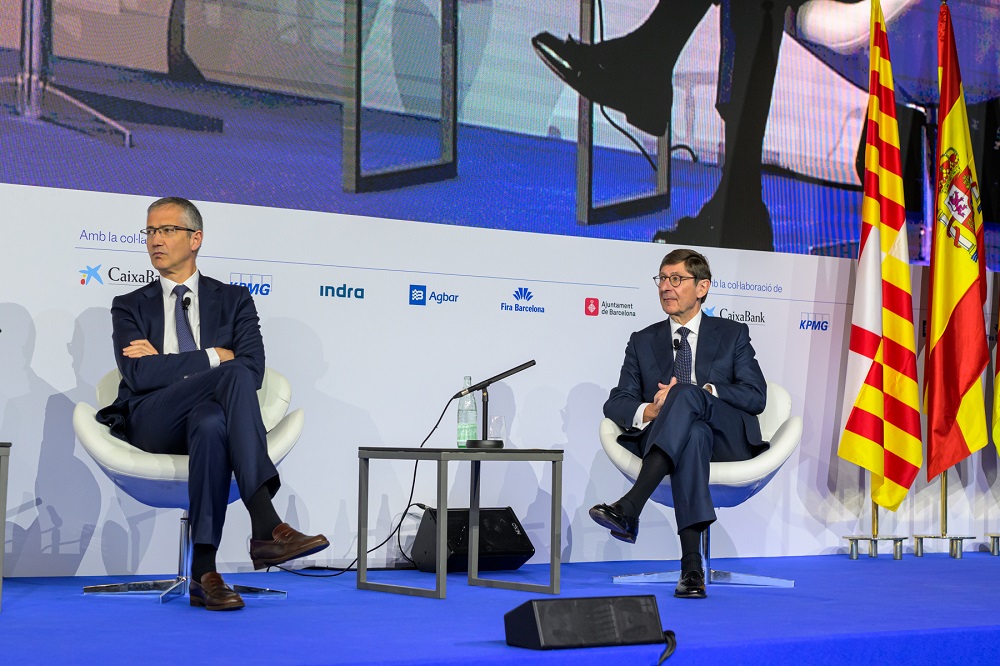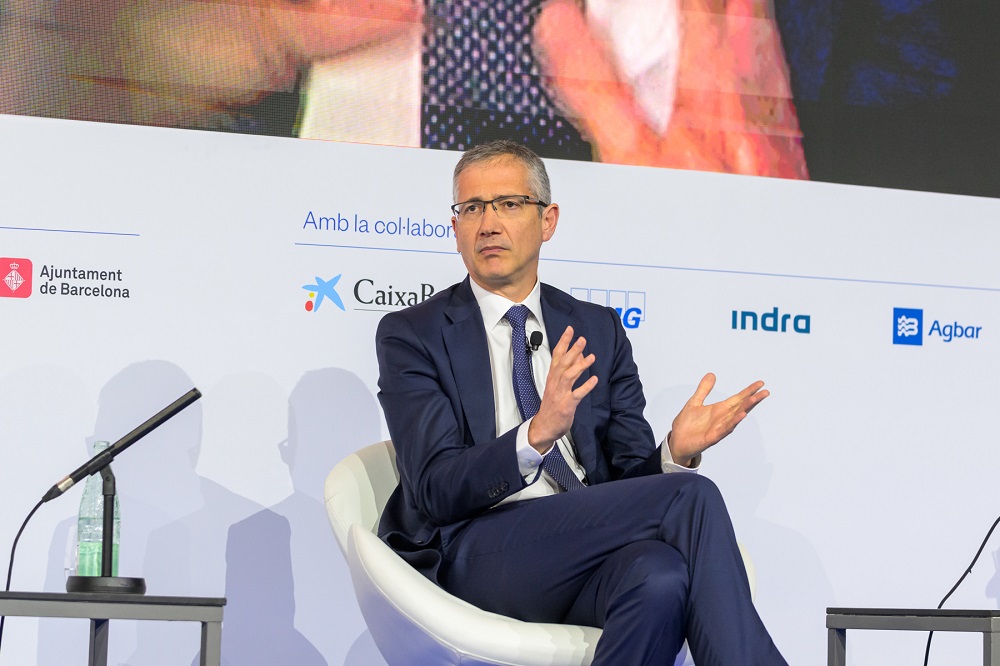Núria Mas, member of the Board of Directors of Cercle d'Economia, introduced the dialogue on the role that financial institutions can play in productivity, thanking the presence of the two speakers and mentioning that this was the last public event of Pablo Hernández de Cos as governor of the Bank of Spain (BdE) after six years at the helm of the institution. Mas put on the table the economic projections for Spain in the short term and the expectations of lower interest rates expected for the month of June.

Pablo Hernández de Cos, governor of the Bank of Spain, was convinced that the current economic situation, with the progressive decline in inflation, would make a first drop in interest rates possible in June, although he referred to the risks associated with an "unstable geopolitics". Already focused on the Spanish economy, on the rise in a "difficult macroeconomic context", he assured that it has shown "a very high degree of resilience" that will make the BdE surely improve the GDP growth forecast for this year.
Despite the good evolution, the governor emphasized the "uncertainties and weaknesses" that may end up creating a very negative scenario. "An uncertainty that will derive from the need to reduce the public deficit, one of the main vulnerabilities of the Spanish economy at the moment," he added. And he recalled the entry into force, next year, of new European rules that "force Spain to reduce debt by half a point each year", which may also have some negative effect on growth. Faced with this "unprecedented situation," he urged "that the process of fiscal consolidation be gradual and that it be accompanied by structural reforms that give confidence and that can generate and even reduce the short-term negative effects of fiscal adjustment."

Low productivity and unemployment
In relation to the low productivity of the Spanish economy, Hernández de Cos insisted that this is, with unemployment, the main cause of the lack of convergence in per capita income with European partners, in a mismatch motivated by different elements (growth dynamics marked by the presence of many small companies, excessive regulatory requirements, high dropout rate and investment in R+D in the private and public sectors).
For his part, José Ignacio Goirigolzarri, chairman of CaixaBank, stressed the need to underpin European growth: "For some time now, I have been obsessively talking about growth". Europe accounts for 6% of the world's population, 18% of GDP and 42% of social spending – "a magnificent situation" – but, if the welfare state is to be guaranteed, it must continue to be strengthened: "It is complex because we have a lot of competition in a world that is experiencing radical changes and we have to be aware that we are not going in the right direction". Compared to the United States, he continued, European growth is lower and "the situation in our country is even weaker", which increases the gap with the US. He agreed with the governor of the BdE on the need to improve training and education (youth unemployment in Spain is double the European data) and pointed out that one of the main concerns of the business community is the lack of personnel. A supporter of combining public and private investment, he opted to support the business world to "retain and create investment, and also to attract it" in "a society that believes in business values, in entrepreneurship".
The role of banking and its resilience
Pablo Hernández de Cos referred to the countercyclical capital buffer, an instrument created by the Basel Committee to increase the resilience of the banking sector in times of systemic risk. This preventive approach will be implemented gradually with an increase in the capital buffer of one point in two phases: half a point in 2025 and another half point in 2026. A measure, according to the governor, that adds "an additional macroeconomic stabilizer, crucial given the current limited fiscal capacity due to high public debt and deficits."
For his part, Goirigolzarri highlighted the major demographic challenges in Spain and Europe (ageing of the population and low birth rate) that impact the pension system and the capacity to save in the long term. He underlined the importance of promoting private pension schemes through tax incentives and argued that banking is not the best instrument to finance investments in innovation and startups, suggesting that the capital market and venture capital funds are more suitable in this field.
Both speakers emphasised the need for greater European integration in terms of capital markets and fiscal union. Hernández de Cos pointed out that a fiscal union is essential to adequately finance "investments in digitalisation, climate change and defence". Goirigolzarri supported this vision with the defense that the future of Europe depends on greater integration, especially in fiscal policy and in the creation of a mutualized deposit guarantee fund.

Artificial Intelligence and digitalization
Regarding the impact of Artificial Intelligence and digitalization on banking, Goirigolzarri stressed that technologies are profoundly transforming banking production and that technological transformation coincides with a radical change in customer habits: he spoke of a "great strategic challenge". And despite the "challenge" posed by the new competitors (FinTech and Big Tech), he was optimistic thanks to "the solid customer base and the confidence that traditional banks still have".
Bank mergers in Spain and the European banking union
Pablo Hernández de Cos admitted that "regulators are concerned about both excessive competition, due to low profitability of the entities, and little competition", while stressing the importance of achieving "a still distant objective", such as "a true European banking union".
And on BBVA's hostile takeover bid for Banco Sabadell, he concluded: "Let's analyse it and once we have a diagnosis, let's make the decision that is best for the economy". "I have nothing to say about the operation, I can't and I shouldn't. It will be up to the shareholders to decide. As a regulator (the BdE) we will have to decide from the point of view of financial stability," he concluded.